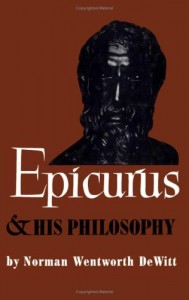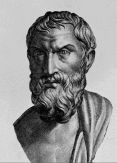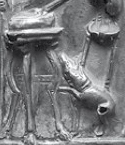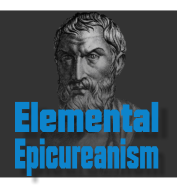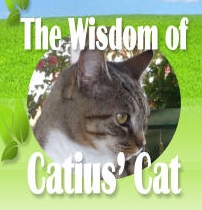Peace and Safety to the Epicureans of today, no matter where you might be – Happy Twentieth!
For this last Twentieth post of 2016 I would like to thank the many people who have become such an important part of my life through the medium of the internet. Mostly through the Epicurean Philosophy Facebook group, but through other avenues as well, I have had the opportunity to make enduring relationships with people I would never have had the chance to meet locally. These people have become of the most valued relationships I have, even though they are not “physical” in the geographic sense. I strongly encourage anyone who is interested in Epicurean philosophy to take the time to participate in the discussions so that more of us can get to know each other. It’s quite amazing how we have such a wide variety of people from all parts of the world – brought together simply by their appreciation for an ancient philosopher who few have heard of, and even fewer really respect.
I also like to use these opportunities to talk about how the last six years of focused research into Epicurean philosophy have led me to where I am today. No doubt I could have done much better had I studied more deeply, and understood more, and worked harder to apply what I learned. Nevertheless I still think I can attribute most of what happiness I have to the decisions I have made under Epicurean influence.
Epicurean philosophy doesn’t give me a crystal ball with which to predict the future, and I continue to make many basic life mistakes. But among the most important things Epicurean philosophy offers me is the confidence that even as I make serious mistakes, I don’t (and won’t) feel the need to throw up my hands and question the most basic aspects of my decision-making process.
I don’t (and won’t) feel the need to think, “Maybe there IS a God (and maybe his name is Jehovah or Allah) and maybe I better tear off my clothes and pray for salvation NOW before it’s too late…” Or – “Maybe if I just read every book Aristotle (or Plato or XXXX) ever wrote I will finally understand everything I need to know.”
In place of those fears I now have confidence in a series of conclusions that I link to the Principle Doctrines, and that I try to apply as a guide in my own decisionmaking. There’s much more than I have time to list here, but the following is a sample of how I think nowadays (the full text of the doctrine being quoted is here):
- “The blessed and immortal nature knows no trouble itself…..” | At this point in my life I feel no need to take an absolute position on whether Epicurus was talking in purely psychological or allegorical terms, or whether he was daringly following his atomist observations to their logical conclusions. Either way, I am secure in the observation that even in 2016 no priest can show me any god creating something from nothing, or destroying anything to nothing. I am therefore confident that there is no place in my mind for fears or wondering about a universe-creating god to whom I must bow and scrape and pray for forgiveness.
- “Death is nothing to us, for that which is dissolved is without sensation…” | I may be in a distinct minority even among modern Epicureans, but when I read doctrine two the take-away that impresses itself on me is not just relief from fear of hell, but the immediacy of the knowledge that this life is all I have. And given that this life is all I have, and I want to get all out of it that I can! Yes it is very true that I cannot look forward to an eternal life, and that what I do in my own life is of no concern to the universe at large. But rather than depressing me, this perspective motivates me to realize that while my life is not important to the universe, my life is of *essential* importance to me! I have experienced enough pleasure in my life to know that I want to experience all of it that I can, while also keeping in mind the limit of the pain that will come if I pursue that pleasure in improper ways. Even more, Epicurean philosophy gives me an understanding of what the word “improper” means in this context. Epicurean philosophy fills in a complete picture of what it means to live a full life, and allows me to leave worrying about eternity to those who have the idle time to worry about useless abstractions. All I want to do, and all I can hope to do, is to live my own life fully. I suppose in somewhat the same way that Nietzche thought that “eternal return” would be a motivational idea, for me the knowledge that my life comes to end at my death is all the motivator I need to spend my time wisely ( and here “wisely” means nothing more than the intelligent pursuit of pleasurable living).
- “The limit of quantity in pleasures is the removal of all that is painful……“ | Yes, yes, I know that I tend to harp on how “simplicity” is not an end in itself, and how I think that points two and three of the Tetrapharmakon can be misleading due to their condensation of the full meaning of PD’s three and four. And yes I know that my argument here can tend to confuse people, especially those who think that if Epicurus stood for anything that he stood for “simplicity.” In my own life I do pursue simplicity in my tastes and choices, and I try to never lose sight of the merit of erring on the side of too little luxury rather than too much. But what that means is a point that I see many people miss, and that is that simplicity must be pursued just like any other “virtue”- as a means rather than an end. As the years go by I hope to develop better ways of explaining how I think PD3 (and PD4) relate to the Platonic anti-pleasure arguments, and that they weren’t just thrown in as nice phrases that ring well in “Stoic” ears.
- “Pain does not last continuously in the flesh…..” | I could repeat what I just wrote about PD3, but it will suffice to say that I shudder to think how many ways “what’s terrible is easy to avoid” can be misinterpreted. To those who lack a sufficient understanding of the full Epicurean message this phrase doesn’t make much sense, or seems like a good object for ridicule, which is a shame and something that we need to work to remedy.
- “It is not possible to live pleasantly without living prudently and honorably and justly….” | If Epicurean philosophy has done one thing for me, it has been to explode the false ideas I had about “virtue” as something higher than the pursuit of living happily. I had been taught as a child that few thoughts were more evil than “the end justifies the means,” and even when I was in college I thought that Cicero’s formulation of “True law” as being the same for all places and all people and all times was sublimely beautiful and worthwhile as a goal. The vast majority of people hold their own notions of “virtue” to be morally unchallenged, and it will continue to be only the Epicurean perspective that offers a healthy (non-skeptical) response to that misunderstanding.
- “To secure protection from men anything is a natural good….” In a world with so few Epicureans and in which we have so little free time, it makes good sense to me to avoid political discussions which would divide us unnecessarily. But almost a full quarter of the Epicurean principal doctrines are devoted to “justice,” and if we are going to experience in our own lifetimes the extent of pleasurable living that is possible to us, it’s up to us to take action to secure our own happiness. Everyone’s circumstances are different, and Epicurean principles will lead to different choices depending on differences in times, places, and peoples. But over time I think more people will come to see that (1) this life is all we have, (2) that our lives are indeed important to us, and (3) and that there are no absolute standards to which people must sacrifice themselves or their friends. And when those ideas regain the momentum that they once attained in the Greco-Roman world I think we will see social reform to an extent hard to imagine today.
- “Some men wished to become famous and conspicuous….” Just as with PD5 and PD10, PD7 reminds me never to praise any “virtue” or condemn any “vice” absolutely. This one helps me remember that even fame and power, like luxury or “profligacy” — all of which are so easy to condemn — must be tested by their results and not by some fictional absolute standard.
- “No pleasure is a bad thing in itself: but the means which produce some pleasures ….” If our current culture did not make it so hard to accept, I might think that Epicurus was unduly obsessed with stating this same point in as many ways as possible. But Platonic “idealism” is seductive to an extreme – and so there are few reminders more important than that there is no absolute outside standard, no center of the universe from which there is a single “correct” perspective, and that all things must be judged ultimately by the pleasure or pain that they bring.
- “If every pleasure could be intensified so that it lasted and influenced the whole organism…” Epicurean philosophy brings nothing if not a new way of thinking. The implications of statements like this, instead of seeming dark and obscure, ought to jump out at us. The path forward here requires us to disengage the formulas and gears that we’ve been taught to engage, and instead follow the lead of observations about the world that are directly in front of us. Lucretius tells us how hunting dogs track down their quarry, and how the light of each new discovery illuminates the way for us to find the next. A reset in our thought processes is necessary if we are to get the most out of what Epicurus left to us.
- “If the things that produce the pleasures of profligates could dispel the fears of the mind….” PD10 is a good place to stop this brief survey and hammer home one of the central themes: “virtue” does not exist in the air, or at the edict of any god, or through any revelation of “reasoning.” As Cicero summarized through Torquatus in “ON ENDS,” and I can hardly think of a more important lesson to remember:“Strip mankind of sensation, and nothing remains. It follows that Nature herself is the judge of that which is in accordance with or contrary to nature. And what does Nature perceive or what does she judge of, beside pleasure and pain, to guide her actions of desire and of avoidance?”
________
As Seneca recorded: Sic fac omnia tamquam spectet Epicurus! So do all things as though watching were Epicurus!
And as Philodemus wrote: “I will be faithful to Epicurus, according to whom it has been my choice to live.”
Additional discussion of this post and other Epicurean ideas can be found at the Epicurean Philosophy Facebook Group and EpicureanFriends.com
















